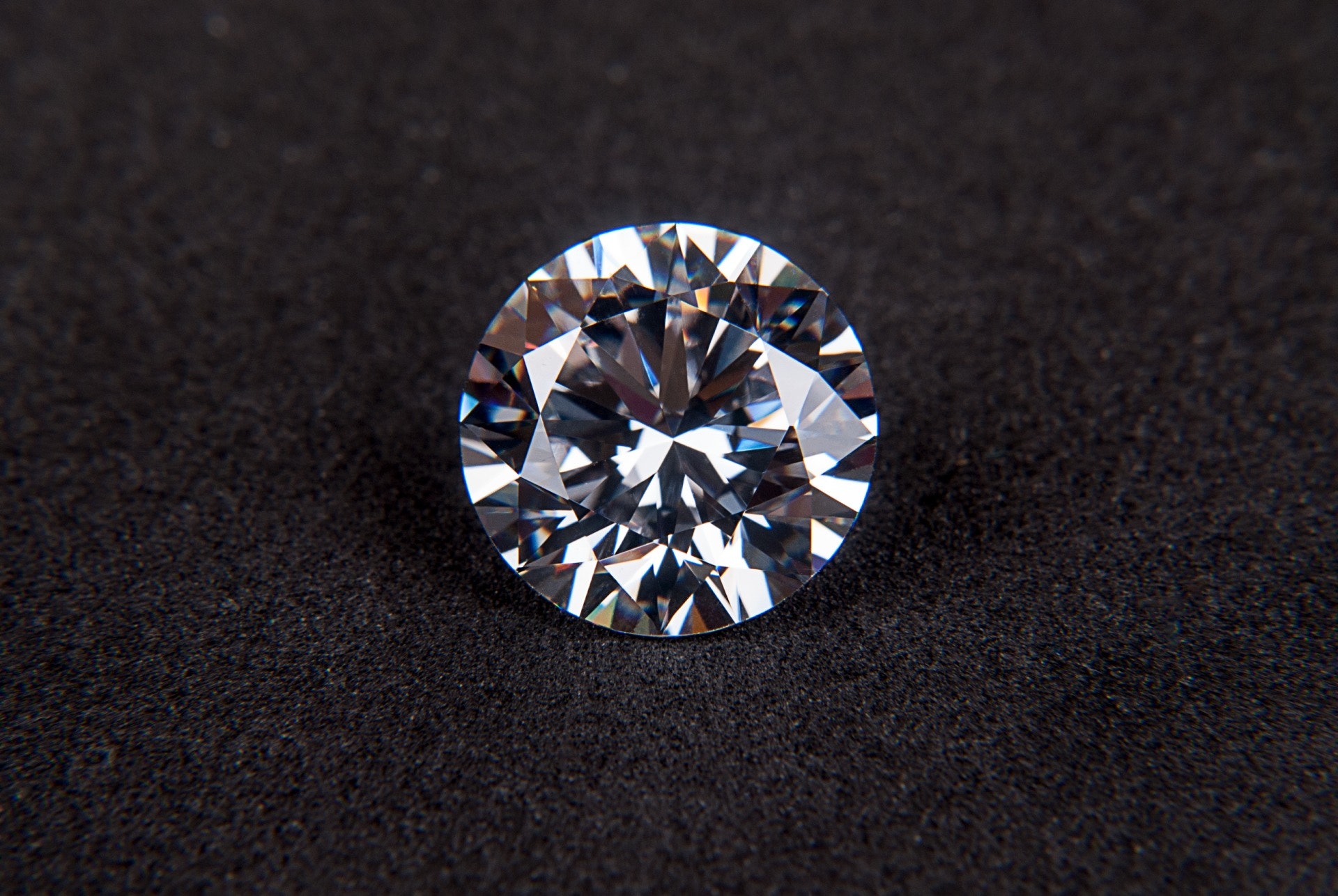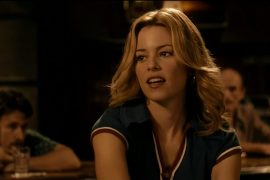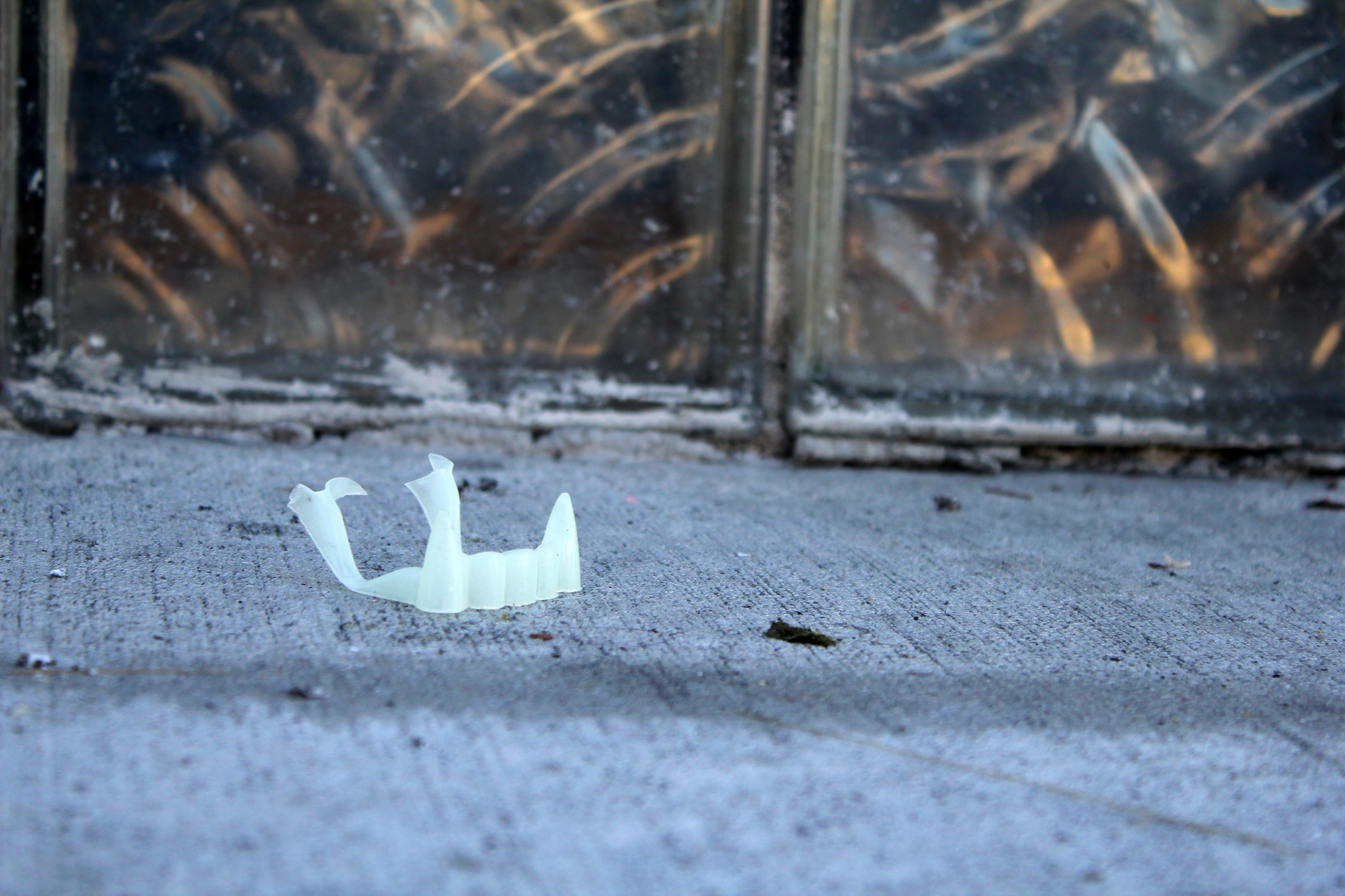Ellen Rhudy
She was a dead man’s child, she would have been half-ghost, half-human, she never had a chance. I told Tom he couldn’t come to the appointments, so I sat alone while the nurses gelled my stomach. She looked healthy on the sonograms, but I carried her with dread. There are ways of banishing ghosts, I just learned them at the wrong time.
I leave the hospital alone after losing her. She was a stillbirth, which was further than any of the others had come. After, one of the nurses sat at my bed with a stack of papers. Some families like to manage the arrangements, she said, and some prefer us to do it. I’d surprised myself by asking to see my daughter one time. The skin was translucent on her chest and the backs of her hands. I could see the blue of her heart and the veins threaded in her feet. She looked very old, with a mummy’s face. Her thin lips were clenched and stripped with fine, pale lines. I’ll take her body, I told the nurse. I imagined they had a graveyard behind the hospital crowded with people who had never quite been alive.
I walk the five miles home, taking high steps over the unmown verge. It’s been a wet summer and weeds snap at my ankles. Later I’ll remember my car skewed in the parking lot and have to return. I tear the hospital’s pamphlet on ghost births, letting the fingernail-size shreds fall behind me. Common occurrence, rarely successful pregnancies, not the fault of the living parent. And on, and on. Some ghost babies make it out of the hospital but fade every day until they disappear, crying for their mother’s milk. Some ghost babies grow into full adults who hold jobs and marry, though you won’t ever find one as president. Some ghost babies return to where they are most comfortable and haunt their mother’s wombs. My ghost baby won’t do any of these things.
Only one crematorium in the state accepts them. The hospital arranges the initial transport, but after that it’s up to me. What I find, when I get home, is that I don’t want to manage this. I sit on the bathroom floor, breathing in the sting of Ajax while I scrub the grout with a brown toothbrush. My breasts ache and I smell my sourness through the bleach.
After dinner Tom appears in the backyard, standing on the patio with his hands on his hips. He looks at the stars. I open the door to tell him to leave.
I just want to be sure you’re okay. He pushes his blond hair behind his ears.
I can’t think of what to say, so I close and latch the door and pull the blinds across. It wasn’t until after the second miscarriage that I realized the truth of him, when the doctor handed me his iPad open to webMD. It’s so rare that you would have a successful birth, he said, in your situation. My brain caught on that phrase, “your situation”—that he thought I was a ghost. Then I understood, I told Tom it was over, told him to leave. I was polite although he had been lying to me for nine years. Not all ghosts want to be seen: that is what I learned from our relationship.
The next day the crematorium calls to confirm the costs of their service. Shouldn’t it be less? I ask, and the woman tries to explain the challenge of burning ghosts, the energy needed to eradicate them from the earth. So imagine that about halved for your child, she says, before I hang up to brush my teeth, standing on tip-toe on the gritty bathroom floor. She sends an email detailing the costs and confirming whether I would like them to mail the cremains or pick them up. It costs $1300, above market-rate for even a full-grown human.
You need to move on, I tell Tom when I see him on the deck again, kneeling and pressing his face to the grayed wood, one eye closed.
I can’t help myself, he says, it’s part of being a ghost. I’ll be here forever.
I watch him for a minute before I close the blinds. All my family knows is that we broke up, that we grew apart. I don’t want to handle the questions. I imagine my friend Beth, leaning close: But couldn’t you feel it, you know, when he was inside you? What kind of woman can’t tell she’s living with a ghost? Every few months Cosmo runs an article like “Ten Signs the Man of Your Dreams is Actually Dead”: Doesn’t eat regular meals; won’t tell you his date of birth; full of excuses when you want to meet his parents; never sunburns; dogs fear him; scared of ditches; scared of heights; doesn’t attend church; can’t swim; is caught on his past. People think it’s so easy, they think they would never make my mistake. The first time I saw Tom he was walking his yellow lab around the block. Not a ghost dog, a real dog, who died four years ago, cancers swelling beneath her skin. Don’t ask me how Tom died.
The crematorium calls after two days to say she’s ready. Her box fits on the palm of my hand, and I pay for her cremation with one of Tom’s checks. That’s her father, I tell the woman as she inspects my forged signature. If you were wondering.
I sit the cardboard box on the mantelpiece, next to a velvet chest holding Sunny. My mother calls to see if I’d like to come over for dinner, and I lie and tell her I’m feeling unwell. I haven’t been able to go to work all week, I tell her. Then I log onto Tom’s bank account. He has $12,394.51, which is an extraordinary figure for a dead man. When I close the page he’s standing on the deck again, as if he knows I’m up to something; but he is a ghost, not a clairvoyant. He holds a white sheet around his shoulders. I open the door. If you wanted to haunt me so much, I tell him, you might’ve come to the hospital.
You know I would have if I could have. He holds out his hands, which always look damp. If you’d let me. I’m ready to not pretend anymore, he says. I will tell everyone. I will talk to your mother. I close the blinds and go back to my laptop. When we started dating, I thought he was nervous to be with me, always sweating. Now I know it’s just life for him. I imagine all of it is like being underwater—that he gets only a blued and distorted version of the world. I don’t like the baby’s box there next to Sunny, so I move her behind the tv stand.
No matter where she is, I feel her. For the next week I move the box around the house, from closet to closet. Wherever I am, Tom is there: sitting on the roof, tapping on the door as I pass through the foyer, trimming the bushes while I eat my breakfast. You can’t throw away everything we have, he told me through the mail slot after he realized I’d banished him. I’d knelt over the toilet for what felt like most of the morning. I thought that if I forbade him I could avoid going through this again. No ghosts could enter my house: that was it, that was final. No ghosts could enter, maybe not even half a ghost could enter.
Everything we had, I told him back through the mail slot, which was a bunch of lies. He wasn’t enough. A ghost husband is always imagining the next life he’ll make for himself. A ghost husband is always looking for the next woman to lure into his damp, pale grasp. You can’t make anything like a full life with a ghost husband—you can only be tricked, for a little while.
After ten days I’ve exhausted my vacation and sick leave and return to the office. I sit the ghost baby on the passenger seat, packed inside another box, and deposit her at the post office. You can’t lose her, I tell the clerk as she sticks a tracking label to the box, rubbing it with the heel of her hand.
Estimated delivery is Wednesday, she says, handing me my receipt. When I turn, Tom is standing before a poster advertising limited-edition stamps, whistling. I’m feeling much better, I tell everyone at work. I sit at my desk and delete emails while I imagine my daughter passing through the postal system, haunting its conveyer belts and box trucks on her way to becoming the next version of herself. Ghost births are so rarely successful, I remind myself. Tom is standing next to the drive that night, a spectral dog barking at his side. I pull in and rest my head on the steering wheel as the door shudders in place behind me. When did Sunny become a ghost? It seems unfair that he gets to have her for all of eternity when I only knew her for five years
When she comes back to me, it’s in the form of a diamond I can hold in my fist. It can disappear between the pads of my fingers. I close my hand around it, trying to feel some promise or hint of who she would have been, if she were a real child. I place her on the tip of my tongue and close my mouth, just for a minute, and return her to the jewelry box.
Tom is at the back of the yard that night, throwing a ball for Sunny. He holds a swaddle of blankets in his arm. I want you to go, I call, I want you to be gone.
He turns and waves. I’m a ghost, he says. What did you expect?
I look up at the gray clouds plodding across the black sky. I have her, I have the only part of her that is solid and whole. Sunny carries the ball to Tom, holding his blanket like it’s a breakable thing. It isn’t, though, and like Cosmo says: They can only haunt you if you let them.
Ellen Rhudy lives in Philadelphia, where she works as an instructional designer. Her fiction has recently appeared in Nimrod, SmokeLong Quarterly, and Jellyfish Review, and is forthcoming in cream city review, Mikrokosmos, and The Adroit Journal. You can find her at ellenrhudy.com, or on twitter at @EllenRhudy.



